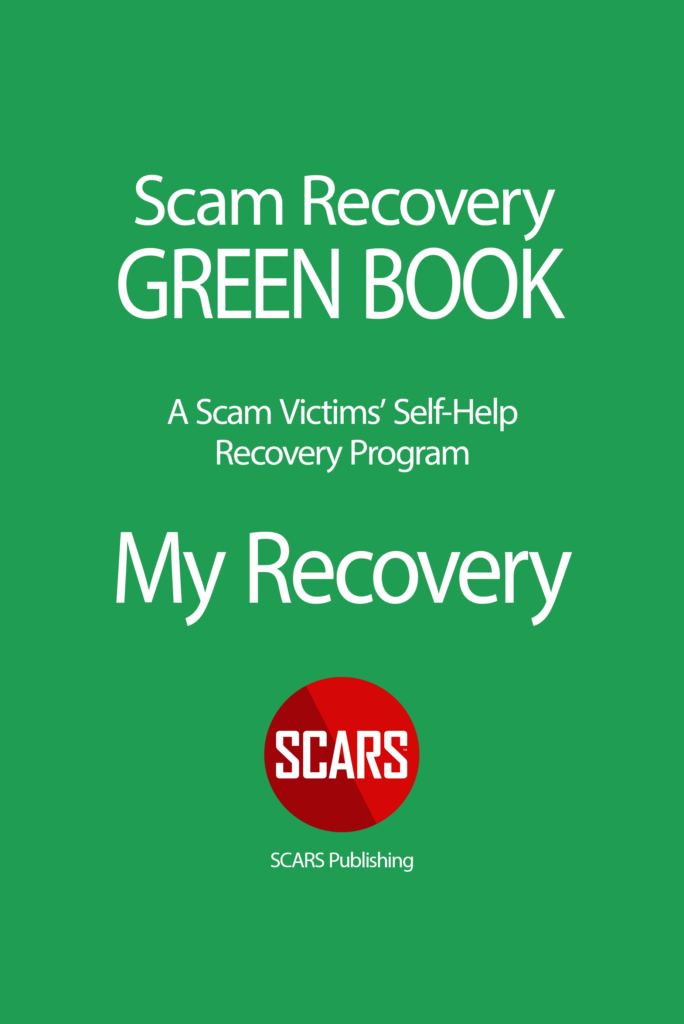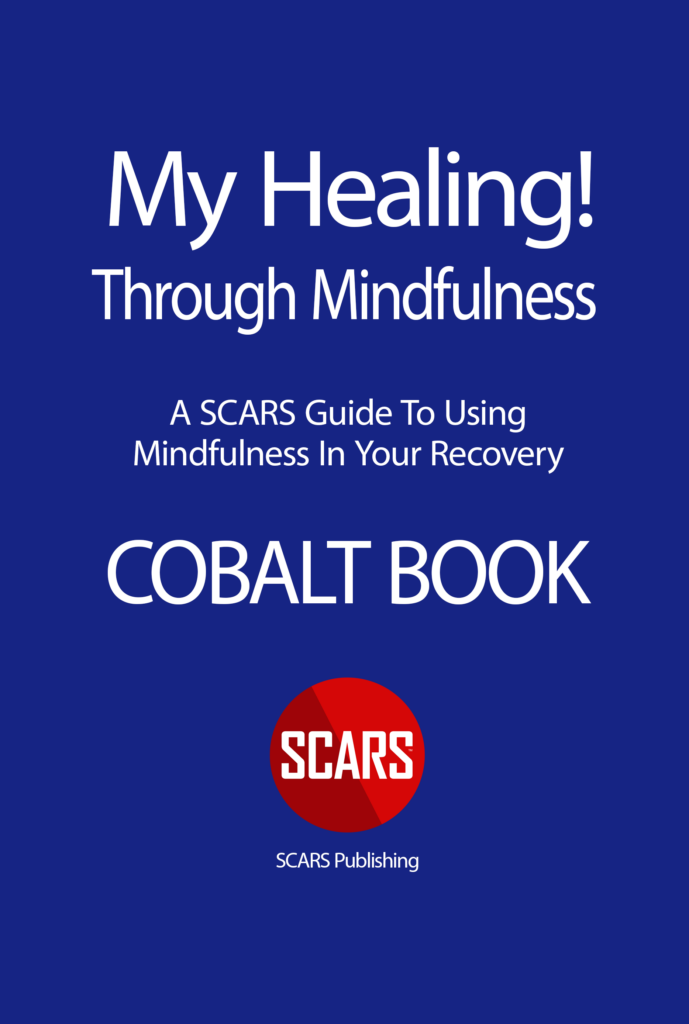Scam Victims: The Need To Tell Their Stories – The Need For Acceptance
Being Accepted is a Basic Primal Need we all have! When Scam Victims tell their Stories they Seek Acceptance, but there is a downside too!
Psychology of Scams
Author:
• Tim McGuinness, Ph.D. – Anthropologist, Scientist, Director of the Society of Citizens Against Relationship Scams Inc.
About This Article
Victims of scams and other crimes often feel a primal need to tell their stories, seeking acceptance and validation from others. This act of sharing serves as a means of seeking connection, healing, and empowerment in the aftermath of trauma.
However, storytelling can also be manipulated by con artists to exploit vulnerabilities and perpetrate further deception.
Trauma survivors, in their search for understanding and meaning, may be susceptible to believing false stories and urban legends, further complicating their recovery journey.
Understanding the dual nature of storytelling is crucial in recognizing its role in both healing and victimization, empowering individuals to navigate the complexities of truth and fiction in their quest for acceptance and justice.

A Note About Labeling!
We often use the term ‘scam victim’ in our articles, but this is a convenience to help those searching for information in search engines like Google. It is just a convenience and has no deeper meaning. If you have come through such an experience, YOU are a Survivor! It was not your fault. You are not alone! Axios!
The Healing Power of Scam Victims’ Storytelling: Why Victims of Crime Need to Tell Their Stories
Almost universally, after the ending of a scam, or for that matter any crime. victims have a primal need to tell their story. Though far too often, shame, self-blame, guilt, and fear of toxic judgment hold them back
After falling victim to a scam, individuals grapple with a myriad of emotions ranging from shock and disbelief to anger and betrayal. Amidst this emotional turmoil, one of the most immediate and pressing needs that emerge is the compelling urge to tell their story. While it may seem like a simple act, sharing their experience holds profound significance in the journey towards healing and recovery. At its core, this need to share is deeply rooted in the primal human need for acceptance and social interaction.
The question is, why do we have this need to tell our stories and how is it both healing and so profoundly dangerous at the same time. In part, it was one of the things that make us all vulnerable to predators.
Primal Human (or Animal) Needs
The primal needs of any animal (that includes us humans too) species generally revolve around survival, reproduction, and well-being. These needs are essential for the continued existence and success of the species. Here are some of the key primal needs:
- Food and Water: Animals require sustenance to survive. They need access to adequate food and clean water to maintain their energy levels, growth, and bodily functions. These allow us the energy to fulfill our other needs
- Shelter and Safety: Animals need safety. Without it we feel physical stress that limits our ability to survive. Shelter or habitats where we can seek refuge from predators, harsh weather conditions, and other environmental threats is a primal need of any species. Safety is essential for their survival and well-being.
- Reproduction: Reproduction is vital for the continuation of the species, and is a primal need. Animals have innate instincts to mate and produce offspring to ensure the survival of their genetic lineage.
- Health and Wellness: Animals require physical and mental well-being to thrive. This includes access to grooming, exercise, and mental stimulation to maintain optimal health.
- Social Interaction: Many animal species are social creatures and have a need for social interaction and companionship. Social bonds play a major role in their survival, communication, and emotional well-being. Even though there are many species that are solitary, they will come together at certain times, such as reproduction.
- Territory and Resources: Most animals have some form of territorial instincts and require access to specific areas or resources for feeding, nesting, or breeding. Maintaining control over territory and resources is essential for their survival and reproductive success.
- Acceptance: perhaps the most powerful of them all, including in humans, is the primal need for acceptance. Without it there is no social interaction, no health and wellness, and certainly no reproduction. But acceptance is not as simple as just survival, it is one of our most complex needs at the same time and drives much in our psychology. When exploited becomes a powerful vulnerability.
These primal needs of any animal species are geared towards ensuring survival, continuation of the species, and overall well-being in their respective environments. These needs drive most behaviors, instincts, and interactions with their surroundings, and with others, shaping their roles within the ecosystem.
While this article addresses the need victims have to tell their stories, it is important to recognize that these primal needs form the basis for almost all victim vulnerability.
The Need for Acceptance
Victims of crime, including scam victims, often experience feelings of shame, guilt, and self-blame in the aftermath of the incident. They question their own judgment or intelligence, wondering how they could have fallen prey to deception, and their own negative coping mechanisms convince them that they saw the signs but did not act. In the face of such internal struggles (cognitive dissonance,) the act of telling their story becomes a powerful tool for seeking acceptance and validation from others, but it is acceptance, above all other emotional reasons that drives this primal need. By recounting their experience and seeking empathy from friends, family, or support groups, victims hope to find reassurance that they are not alone in their ordeal and that their feelings are valid.
Acceptance allows victims to become part of a community, which after a scam or other crime also fills the need for community, and with that comes safety, a kind of shelter. While the emotional benefits are important and sustaining, understanding the primal needs behind this act helps us to both see the importance of sharing our story, but also the larger role that storytelling has in the very few species that tell their stories (or histories) to others of their species – humans, dolphins and whales, and elephants. Interestingly, many believe that it was the attempt to communicate stories that developed language and another the other way around.
Acceptance involves being recognized, valued, and included by others within a social group or community. For social animals, such as humans, acceptance creates a sense of belonging, security and safety, and connectedness, which are essential for overall well-being. Being accepted by peers and social groups provides emotional support, reduce stress, and promote mental health.
In many animal species, including humans, social rejection or isolation has real and serious detrimental effects on an individual’s physical and psychological health. It leads to increased stress levels, loneliness, depression and anxiety, and even impacts immune function and longevity. The need for acceptance is tightly intertwined with the primal need for social interaction and is essential for survival, and maintaining overall health and quality of life.
While acceptance may not be as immediately critical to survival as food or shelter, its importance lies in its role in promoting psychological resilience and social cohesion within animal communities. As such, it can be considered a fundamental aspect of well-being for many species, particularly those that rely on social bonds for support and survival.
Social Interaction and Connection
Beyond seeking acceptance, sharing one’s story is also a fundamental aspect of human social interaction and connection.
Because humans are social creatures, in times of distress, individuals instinctively turn to others for comfort, understanding, and support. By sharing their experiences with trusted confidants or support networks (their tribe,) victims of crime can alleviate feelings of isolation and loneliness. Through this act of communication, they forge meaningful connections with others who (are or become their community) and can receive empathy, encouragement, and practical assistance, restoring a sense of belonging and solidarity in their recovery journey.
Breaking the Silence
Sharing one’s story serves a broader societal purpose by breaking the silence surrounding crime and victimization. In many cases, victims may initially hesitate to speak out due to fear of toxic judgment, stigma, or reprisal. However, by courageously speaking up and sharing their experiences, they not only reclaim their voice and agency but also raise awareness about the prevalence and impact of crime in society. Their narratives shed light on the tactics used by scammers and perpetrators, empowering others to recognize warning signs and protect themselves from similar exploitation.
All of that sounds good, but it is actually very important not to complicate the reasoning. We really need to tell our stories for our own well-being, not for the well-being of others. Ironically, in telling the story it serves both roles. While this may sound selfish, this primal need to tell our story, there is nothing wrong with doing it to gain acceptance, as long as it is honestly offered. Just remember that the scammers used their ‘story’ as a manipulative tool against their victims. So storytelling has also become weaponized by criminals and narcissists alike to victimize others. Stories are the basis of all ‘con games’ and deception.
Catharsis and Empowerment
Telling one’s story is also a cathartic and empowering experience for victims of crime, when it results in acceptance, but when it results in toxic judgment or rejection quite the opposite.
Through the act of verbalizing their thoughts, emotions, and experiences, individuals gain a sense of clarity, perspective, and emotional release. By articulating their struggles and triumphs, victims reclaim a sense of control over their narrative and identity, moving from a position of victimhood to survivorship. In sharing their journey of resilience and recovery, they can inspire hope and resilience in others facing similar struggles.
The Benefits
At its core, the need to tell one’s story stems from primal instincts ingrained in human nature. Since ancient times, humans have relied on social connections and communal support for survival. When faced with adversity or trauma, sharing experiences with others served as a means of seeking acceptance, understanding, and validation from the community. This primal drive for social connection and belonging remains deeply embedded in the human psyche, driving individuals to seek solace and empathy through the act of sharing their stories.
Beyond its primal roots, telling one’s story carries significant emotional and psychological benefits for victims of crime. Firstly, sharing their experiences provides a sense of validation and affirmation of their reality, especially when their reality was manipulated and distorted by deception. Scam victims grapple with feelings of self-doubt, shame, and disbelief in the aftermath of the traumatic event. By verbalizing their experiences and having their stories acknowledged by others, victims are able to validate their own emotions and perceptions, reaffirming the legitimacy of their ordeal, and re-establishing a connection with reality.
Moreover, telling their story serves as a cathartic release of pent-up emotions and trauma. Bottling up feelings of fear, anger, and sadness takes a huge toll on anyone’s mental and emotional well-being, leading to increased stress, anxiety, and even depression. Verbalizing their experiences allows victims to externalize their emotions, freeing themselves from the burden of carrying their trauma alone. In sharing their story, victims are able to process their feelings, gain perspective on their experiences, and begin the healing process.
Additionally, sharing their story rebuilds their sense of connection and solidarity with others who have undergone similar experiences. Victims often feel isolated and alone in their suffering, believing that no one else could possibly understand what they are going through. However, by sharing their stories, victims discover that they are not alone in their struggles. Connecting with fellow survivors and empathetic listeners creates a sense of community and support, offering comfort, validation, and encouragement along the journey to recovery.
Telling their story empowers victims to reclaim their sense of agency and control in the aftermath of victimization. In a situation where they felt powerless and vulnerable, sharing their experiences allows victims to assert their voice and advocate for themselves. By speaking out about their ordeal, victims can raise awareness about the prevalence of scams and fraud, educate others about warning signs and red flags, and advocate for systemic changes to prevent future victimization.
The Dark Side of Storytelling
Storytelling, that age-old practice woven into the fabric of human communication, serves as the cornerstone of both connection and deception. In seeking the truth and deeper need to tell our stories, we also have to acknowledge that stories are used for evil too.
While storytelling has the power to unite communities, share experiences, and inspire change, it also serves as the con artist’s most potent weapon in perpetrating scams and frauds. Understanding the dual nature of storytelling is crucial in recognizing its role in manipulation and victimization, while also empowering individuals to safeguard themselves against exploitation.
At its core, storytelling is a vehicle for conveying information, shaping perceptions, and eliciting emotional responses. Scammers or fraudsters harness the persuasive power of storytelling to craft elaborate narratives designed to manipulate and control their victims. Through carefully constructed tales, con artists create a false sense of trust, credibility, and urgency, luring unsuspecting individuals into their web of deception.
The art of storytelling allows criminals to exploit fundamental human vulnerabilities, including the innate desire for acceptance, belonging, and validation. By weaving compelling narratives that resonate with their victims’ hopes, fears, and aspirations, the criminals create emotional hooks that capture and ensnare their targets, leading to psychological enslavement. Whether through tales of financial prosperity, romantic fulfillment, or personal empowerment, con artists leverage storytelling to prey on their victims’ deepest desires and vulnerabilities.
Also, storytelling serves as a means of establishing credibility and authority in the eyes of their victims. Criminals often pose as trusted authorities, experts, or benefactors, weaving elaborate backstories and credentials to bolster their facade of legitimacy. Through the artful manipulation of language, tone, and demeanor, con artists create the illusion of expertise and reliability, making it difficult for victims to discern truth from fiction.
Storytelling plays a pivotal role in the execution of various scam tactics, including emotional manipulation, fear-mongering, and social engineering. criminals employ persuasive narratives to evoke strong emotional responses in their victims, such as greed, fear, or sympathy, driving them to act impulsively and irrationally. Additionally, they use their stories to manipulate their victim’s own cognitive biases against them. Whether through sob stories designed to elicit sympathy or elaborate schemes that exploit victims’ greed and ambition, storytelling is the linchpin of scam tactics aimed at manipulating victims’ emotions and behaviors.
However, while storytelling is the con artist’s most powerful tool, it is also the key to empowering victims to recognize and resist manipulation. By educating individuals about the tactics and strategies employed by con artists, victims can learn to detach and use their mind’s defenses to identify red flags, question suspicious narratives, and assert their boundaries. In sharing their own stories of victimization, survivors can actually increase or restore their ability to debunk the myths, urban legends, biases, and stereotypes surrounding scams and frauds.
The Stories of Others Can Lead to False Beliefs
In the aftermath of a scam or fraud, traumatized scam victims often find themselves grappling with a myriad of emotions, uncertainties, and vulnerabilities. While healing from the effects of trauma is a complex and deeply personal journey, many survivors are confronted with the additional challenge of navigating a world where truth and fiction often blur, especially when it comes to the proliferation of false stories and urban legends.
Trauma leaves a profound impact on the psyche, disrupting cognitive processes, emotional regulation, and critical thinking abilities. As a result, traumatized individuals may find themselves more susceptible to believing stories that are far from true, including urban legends and other myths perpetuated by well-meaning individuals. See more about this and the brain’s TPJ here.
One of the primary reasons for this susceptibility is the heightened state of emotional arousal and distress experienced by trauma survivors. When individuals are in a state of heightened emotional arousal, their ability to discern fact from fiction becomes compromised, as their cognitive resources are focused on processing and managing intense emotions (cognitive dissonance.) This emotional dysregulation makes it easier for false information and urban legends to take hold, as traumatized individuals are typically more inclined to seek explanations or narratives that validate their emotional experiences (this is a cognitive bias called confirmation bias.)
The Continuing Impact of Trauma
Trauma can disrupt individuals’ sense of reality and agency, leading to feelings of powerlessness, vulnerability, and distrust, and this in turn can lead to the easy acceptance of the stories from other victims that may include their false beliefs. While the emotions that every victim shares are valid, the information content of their stories may not be. In their search for understanding and meaning, traumatized individuals often turn to nonprofessional external sources, including urban legends and false stories, as a way to make sense of their experiences and regain a sense of control. These narratives offer a semblance of order and coherence in a world that feels chaotic and unpredictable, providing a framework through which survivors can interpret and contextualize their trauma, even though it may be completely wrong.
Additionally, trauma can impair individuals’ ability to critically evaluate information and assess its credibility. The cognitive distortions and schema disruptions associated with trauma can distort individuals’ perceptions of reality, making it difficult to distinguish between fact and fiction. As a result, false stories and urban legends may be perceived as genuine and trustworthy, especially when they align with survivors’ pre-existing beliefs, fears, or biases.
The social dynamics surrounding trauma can contribute to the spread and perpetuation of false stories and urban legends which tend to be rampant in scam victim communities. Traumatized individuals often seek validation and support from others who have shared similar experiences, forming communities where narratives and beliefs are shared and reinforced. In these echo chambers, false stories and urban legends can take on a life of their own, perpetuated by well-meaning individuals who believe they are offering comfort and solidarity to fellow survivors.
Despite the potential harm caused by false stories and urban legends, it’s essential to recognize that their proliferation is often driven by a genuine desire to make sense of the incomprehensible and connect with others who have shared similar experiences.
Summary
Storytelling is a double-edged sword that shapes our understanding of the world, for better or for worse. While it serves as the foundation of scams and frauds, empowering con artists to exploit vulnerabilities and manipulate victims, it also holds the power to educate, inform, and empower individuals to protect themselves against deception. By understanding the role of storytelling in both victimization and empowerment, we can work towards building a more resilient and informed society, where stories are a source of strength rather than vulnerability.
-/ 30 /-
What do you think about this?
Please share your thoughts in a comment below!
More Related Information:
Statement About Victim Blaming
SCARS Institute articles examine different aspects of the scam victim experience, as well as those who may have been secondary victims. This work focuses on understanding victimization through the science of victimology, including common psychological and behavioral responses. The purpose is to help victims and survivors understand why these crimes occurred, reduce shame and self-blame, strengthen recovery programs and victim opportunities, and lower the risk of future victimization.
At times, these discussions may sound uncomfortable, overwhelming, or may be mistaken for blame. They are not. Scam victims are never blamed. Our goal is to explain the mechanisms of deception and the human responses that scammers exploit, and the processes that occur after the scam ends, so victims can better understand what happened to them and why it felt convincing at the time, and what the path looks like going forward.
Articles that address the psychology, neurology, physiology, and other characteristics of scams and the victim experience recognize that all people share cognitive and emotional traits that can be manipulated under the right conditions. These characteristics are not flaws. They are normal human functions that criminals deliberately exploit. Victims typically have little awareness of these mechanisms while a scam is unfolding and a very limited ability to control them. Awareness often comes only after the harm has occurred.
By explaining these processes, these articles help victims make sense of their experiences, understand common post-scam reactions, and identify ways to protect themselves moving forward. This knowledge supports recovery by replacing confusion and self-blame with clarity, context, and self-compassion.
Additional educational material on these topics is available at ScamPsychology.org – ScamsNOW.com and other SCARS Institute websites.
-/ 30 /-
What do you think about this?
Please share your thoughts in a comment below!
SCARS LINKS: AgainstScams.org RomanceScamsNOW.com ContraEstafas.org ScammerPhotos.com Anyscam.com ScamsNOW.com
reporting.AgainstScams.org support.AgainstScams.org membership.AgainstScams.org donate.AgainstScams.org shop.AgainstScams.org
youtube.AgainstScams.org linkedin.AgainstScams.org facebook.AgainstScams.org
5 Comments
Leave A Comment
TABLE OF CONTENTS
- Being Accepted is a Basic Primal Need we all have! When Scam Victims tell their Stories they Seek Acceptance, but there is a downside too!
- About This Article
- A Note About Labeling!
- The Healing Power of Scam Victims’ Storytelling: Why Victims of Crime Need to Tell Their Stories
- Primal Human (or Animal) Needs
- The Need for Acceptance
- Social Interaction and Connection
- Breaking the Silence
- Catharsis and Empowerment
- The Benefits
- The Dark Side of Storytelling
- The Stories of Others Can Lead to False Beliefs
- The Continuing Impact of Trauma
- Summary
- More Related Information:
CATEGORIES
![NavyLogo@4x-81[1] Scam Victims: The Need To Tell Their Stories - The Need For Acceptance - 2024](https://scamsnow.com/wp-content/uploads/2025/04/NavyLogo@4x-811.png)
ARTICLE META
Important Information for New Scam Victims
- Please visit www.ScamVictimsSupport.org – a SCARS Website for New Scam Victims & Sextortion Victims.
- SCARS Institute now offers its free, safe, and private Scam Survivor’s Support Community at www.SCARScommunity.org – this is not on a social media platform, it is our own safe & secure platform created by the SCARS Institute especially for scam victims & survivors.
- SCARS Institute now offers a free recovery learning program at www.SCARSeducation.org.
- Please visit www.ScamPsychology.org – to more fully understand the psychological concepts involved in scams and scam victim recovery.
If you are looking for local trauma counselors, please visit counseling.AgainstScams.org
If you need to speak with someone now, you can dial 988 or find phone numbers for crisis hotlines all around the world here: www.opencounseling.com/suicide-hotlines
Statement About Victim Blaming
Some of our articles discuss various aspects of victims. This is both about better understanding victims (the science of victimology) and their behaviors and psychology. This helps us to educate victims/survivors about why these crimes happened and not to blame themselves, better develop recovery programs, and help victims avoid scams in the future. At times, this may sound like blaming the victim, but it does not blame scam victims; we are simply explaining the hows and whys of the experience victims have.
These articles, about the Psychology of Scams or Victim Psychology – meaning that all humans have psychological or cognitive characteristics in common that can either be exploited or work against us – help us all to understand the unique challenges victims face before, during, and after scams, fraud, or cybercrimes. These sometimes talk about some of the vulnerabilities the scammers exploit. Victims rarely have control of them or are even aware of them, until something like a scam happens, and then they can learn how their mind works and how to overcome these mechanisms.
Articles like these help victims and others understand these processes and how to help prevent them from being exploited again or to help them recover more easily by understanding their post-scam behaviors. Learn more about the Psychology of Scams at www.ScamPsychology.org
SCARS INSTITUTE RESOURCES:
If You Have Been Victimized By A Scam Or Cybercrime
♦ If you are a victim of scams, go to www.ScamVictimsSupport.org for real knowledge and help
♦ SCARS Institute now offers its free, safe, and private Scam Survivor’s Support Community at www.SCARScommunity.org/register – this is not on a social media platform, it is our own safe & secure platform created by the SCARS Institute especially for scam victims & survivors.
♦ Enroll in SCARS Scam Survivor’s School now at www.SCARSeducation.org
♦ To report criminals, visit https://reporting.AgainstScams.org – we will NEVER give your data to money recovery companies like some do!
♦ Follow us and find our podcasts, webinars, and helpful videos on YouTube: https://www.youtube.com/@RomancescamsNowcom
♦ Learn about the Psychology of Scams at www.ScamPsychology.org
♦ Dig deeper into the reality of scams, fraud, and cybercrime at www.ScamsNOW.com and www.RomanceScamsNOW.com
♦ Scam Survivor’s Stories: www.ScamSurvivorStories.org
♦ For Scam Victim Advocates visit www.ScamVictimsAdvocates.org
♦ See more scammer photos on www.ScammerPhotos.com
You can also find the SCARS Institute’s knowledge and information on Facebook, Instagram, X, LinkedIn, and TruthSocial
Psychology Disclaimer:
All articles about psychology and the human brain on this website are for information & education only
The information provided in this and other SCARS articles are intended for educational and self-help purposes only and should not be construed as a substitute for professional therapy or counseling.
Note about Mindfulness: Mindfulness practices have the potential to create psychological distress for some individuals. Please consult a mental health professional or experienced meditation instructor for guidance should you encounter difficulties.
While any self-help techniques outlined herein may be beneficial for scam victims seeking to recover from their experience and move towards recovery, it is important to consult with a qualified mental health professional before initiating any course of action. Each individual’s experience and needs are unique, and what works for one person may not be suitable for another.
Additionally, any approach may not be appropriate for individuals with certain pre-existing mental health conditions or trauma histories. It is advisable to seek guidance from a licensed therapist or counselor who can provide personalized support, guidance, and treatment tailored to your specific needs.
If you are experiencing significant distress or emotional difficulties related to a scam or other traumatic event, please consult your doctor or mental health provider for appropriate care and support.
Also read our SCARS Institute Statement about Professional Care for Scam Victims – click here
If you are in crisis, feeling desperate, or in despair, please call 988 or your local crisis hotline – international numbers here.
More ScamsNOW.com Articles
A Question of Trust
At the SCARS Institute, we invite you to do your own research on the topics we speak about and publish. Our team investigates the subject being discussed, especially when it comes to understanding the scam victims-survivors’ experience. You can do Google searches, but in many cases, you will have to wade through scientific papers and studies. However, remember that biases and perspectives matter and influence the outcome. Regardless, we encourage you to explore these topics as thoroughly as you can for your own awareness.



























![scars-institute[1] Scam Victims: The Need To Tell Their Stories - The Need For Acceptance - 2024](https://scamsnow.com/wp-content/uploads/2025/04/scars-institute1.png)

![niprc1.png1_-150×1501-1[1] Scam Victims: The Need To Tell Their Stories - The Need For Acceptance - 2024](https://scamsnow.com/wp-content/uploads/2025/04/niprc1.png1_-150x1501-11.webp)
Telling my story when I reported it to my local PD felt like a huge weight was lifted off my shoulders. No more hiding, pretending, covering up.
The need to share with others who have similar experiences is therapeutic. To be and feel seen by others is an essential part of the healing process. You really are not alone. This understanding leads to the acceptance that there’s no shame in what happened to you and therefore you can begin to shed the guilt as well. Being part of the SCARS community is life-saving.
I feel a need to tell my story. I am also very afraid to tell my story. My husband believes me as does my therapist. But when I tried to tell another trusted person, I didn’t even get through the first few sentences and words before I was attacked and called names. I don’t know. I want to tell my story and I don’t.
After documenting my scam and reporting it to all the law enforcement agencies and my bank, my need for sharing my story was pretty satisfied. Sharing with fellow SCARS members is also helpful.
I need to begin telling my survivor story for others to hear
You can visit http://www.ScamVictimsSupport.org and use the Tell Your Story function